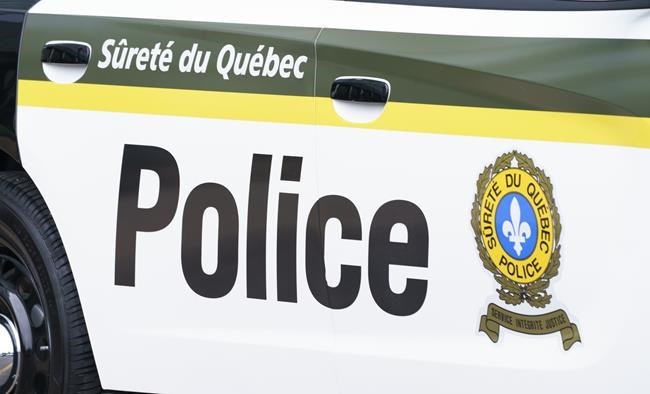
A Surete du Quebec police car is seen in Montreal on July 22, 2020. Quebec provincial police is launching the portable camera pilot project, an initiative that will take place in four different regions for the next 12 months. THE CANADIAN PRESS/Paul Chiasson
Republished April 26, 2021 - 2:17 PM
Original Publication Date April 26, 2021 - 10:30 AM
MONTREAL - A pilot project that is equipping Quebec provincial police officers with body cameras began on Monday in Rimouski, located about 300 kilometres northeast of Quebec City.
Ten officers in that city will wear body cameras for the next six months and are mandated to activate them manually during certain interventions such as when they are making arrests or conducting interviews for an investigation.
The pilot project will run for 12 months and include 40 body cameras worn by officers in four separate regions.
Public Security Minister Genevieve Guilbault said Monday in a news release her department launched the pilot project to improve trust between citizens and police. She said the body camera program will allow police to collect tangible data that will help determine whether the project can be launched on a wider scale.
"At the end of the pilot project, we will have carried out an experiment which, over a significant period, will shed light on the various aspects associated with the wearing of portable cameras in police practices," she said.
Calgary was the first large Canadian police force to have adopted the technology. Officers in that city were equipped with body cameras in 2019, and the Toronto Police Service has said it intends to outfit officers with body cameras this year.
Police in Quebec's northern Nunavik region helped the provincial police put the pilot project together. Nunavik's police service introduced body cameras in early 2020 for officers working in three of the territory's 14 villages, Capt. Maxime Mercier said in an interview Monday.
So far, he said he hasn't noticed any changes in the behaviour of the officers who have begun wearing the cameras. The cameras, however, give officers a better idea of what happens during interventions because they can review the footage if something goes wrong, Mercier explained.
"It's been very positive for everybody," Mercier said. "It's a win-win situation not only for the population, but also for the police."
This report by The Canadian Press was first published on April 26, 2021.
News from © The Canadian Press, 2021